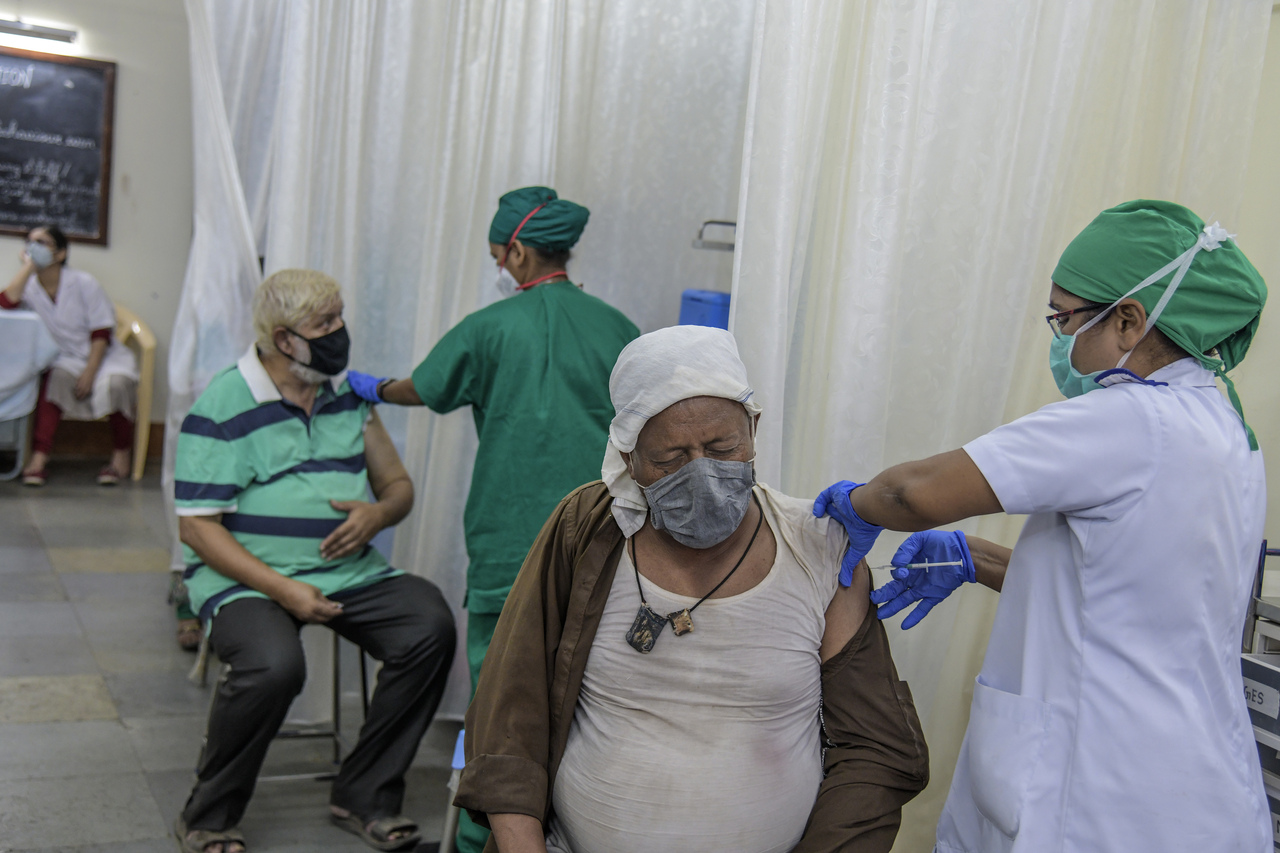US loosens restrictions on export of Covid-19 vaccine raw materials to India
Sign up now: Get ST's newsletters delivered to your inbox

The US announced that it will share up to 60 million doses of its AstraZeneca vaccine with other countries.
PHOTO: NYTIMES
Follow topic:
NEW DELHI - Caving under increasing public criticism for failing to act and help India fight a devastating second Covid-19 wave, the United States rolled out a series of belated supportive measures, including sending over raw material required for the production of Covid-19 vaccines in India.
A White House readout of a phone call on Monday (April 26) between US President Joe Biden and Indian Prime Minister Narendra Modi said the US has begun providing a range of emergency assistance, including oxygen-related supplies, vaccine materials, and therapeutics.
The export of these materials, such as single-use bioreactor bags and filters, was severely curtailed after the Biden administration invoked powers under the Defence Production Act (DPA), a Korean War-era law, in January to ensure "a sustainable public health supply chain". It was done to bolster production of vaccines and other items such as testing kits and protective equipment in the US.
This, however, had a crippling impact on Indian vaccine manufacturers, who said the move was slowing down their ability to produce jabs. Mr Adar Poonawalla, chief executive officer of the Serum Institute of India (SII), even appealed this month to Mr Biden, asking him to lift restrictions on production supplies.
"I humbly request you to lift the embargo of raw material exports out of the US so that vaccine production can ramp up," he tweeted on April 16. His firm is producing the AstraZeneca vaccine in India under the Covishield brand name. It is one of the two vaccines currently being used in the country.
Besides helping the SII ramp up production of Covishield by diverting its pending orders of vaccine supplies such as filters to India, the US also announced on Monday that it will share up to 60 million doses of its AstraZeneca vaccine with other countries as they become available. While the vaccine is being produced in the US, it is not authorised for use there.
Less than 5 per cent of the Indian population has been fully vaccinated and a scarcity of vaccines at a time when the country has been battered by a severe second wave had led to growing calls last week on the US government to relax its export restrictions and even send its vaccines to India.
"The US has something like a vaccine glut. India is in dire straits. Please overturn this export ban ASAP," tweeted writer Salman Rushdie last Saturday.
Until last week, the US was still defending its export restrictions, with state department spokesman Ned Price saying "the United States first and foremost is engaged in an ambitious and effective and, so far, successful effort to vaccinate the American people".
The unprecedented increase in demand for Covid-19 vaccines has created a global shortage of critical input materials. Vaccine producers have ramped up production capacity of Covid-19 vaccines from zero to 10 billion annually, when the pre-pandemic global vaccine manufacturing capacity was just five billion, according to Mr Thomas B. Cueni, the director general of the International Federation of Pharmaceutical Manufacturers and Associations (IFPMA).
A typical vaccine manufacturing plant uses around 9,000 different materials sourced from some 300 suppliers across approximately 30 different countries, according to an IFPMA estimate. The absence of just one of these elements can have a crippling impact on production.
The SII did not respond to a request for comment. However, Mr Rajinder Kumar Suri, the CEO of the Developing Countries Vaccine Manufacturers' Network, told an online press conference last Friday that most of the scarce critical materials come from the US and restrictions under the DPA had proven to be a "real bottleneck".
"There is a complete chain. So if any one of the components is missing, or some of these components are missing, the entire chain comes to a grinding halt," he said. "If a company is manufacturing one billion doses a year… and you do not supply the material for one month, 100 million doses are gone and these 100 million doses can have a tremendous impact on maybe 100 countries," he added.
Meanwhile, as Indian vaccine makers struggled to access materials from the US, Pfizer and Moderna, two American pharmaceutical companies, continued to benefit from a key raw material from India for their mRNA Covid-19 vaccines.
VAV Lifesciences, a Mumbai-based firm, has been supplying phospholipids since December to a US-based contract development and manufacturing organisation that produces gene-based lipid nanoparticles used in the Pfizer-BioNTech and Moderna mRNA vaccines.
It is reportedly one of the world's only four firms that manufacture phospholipids, crucial biomolecules used to manufacture mRNA-based Covid-19 vaccines. Producers of these vaccines have also been facing a scarcity of raw materials.
"We have been trying to ramp up production and try our best to meet the global demand, and that is such a struggle," Mr Arun Kedia, the managing director of VAV Lifesciences told The Straits Times. The firm has increased production of its phospholipids by 10 times since June last year and expects it to go up another 10 times by December 2021.

